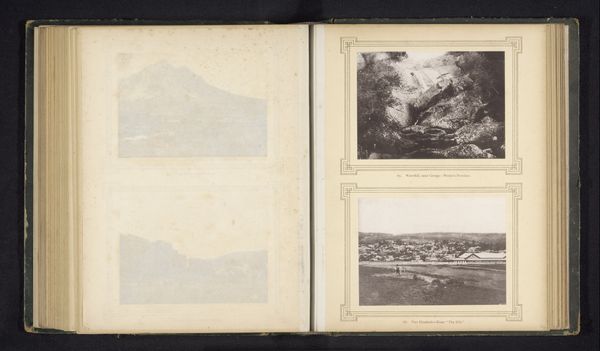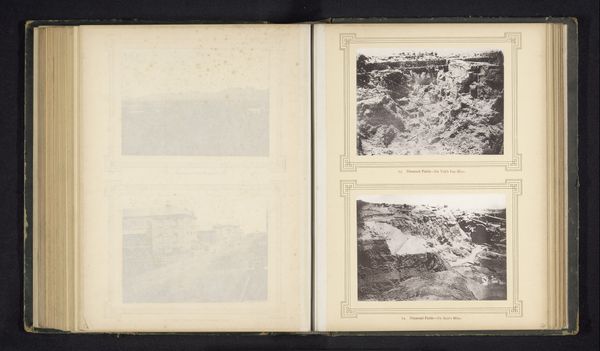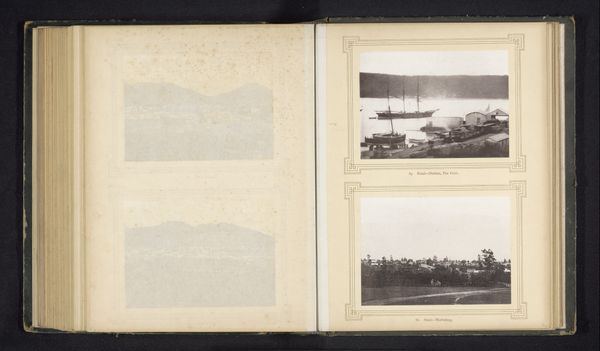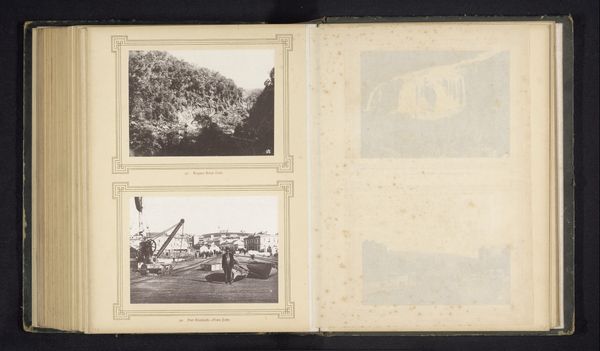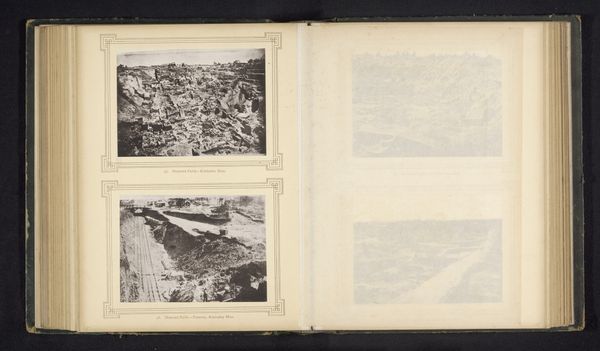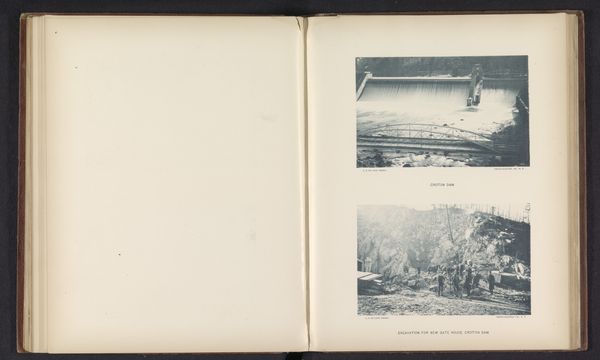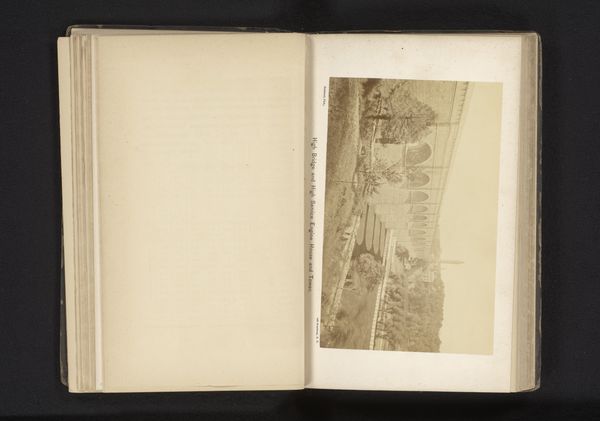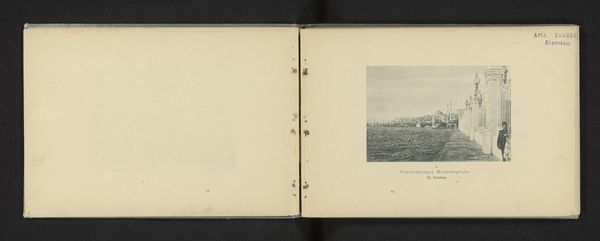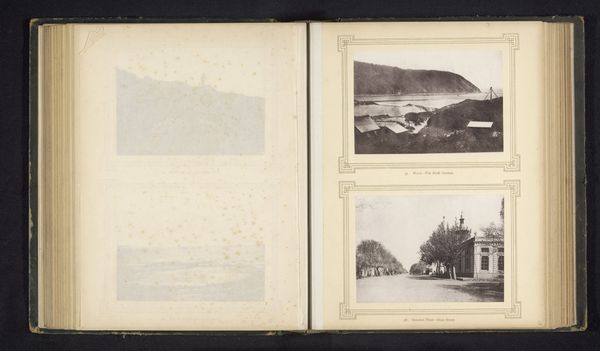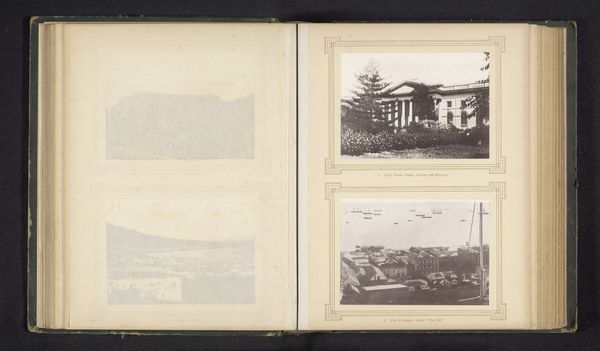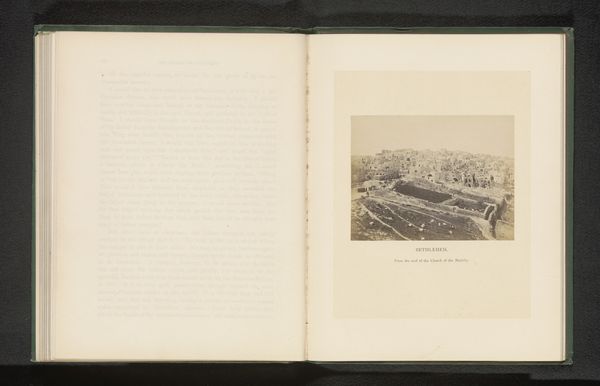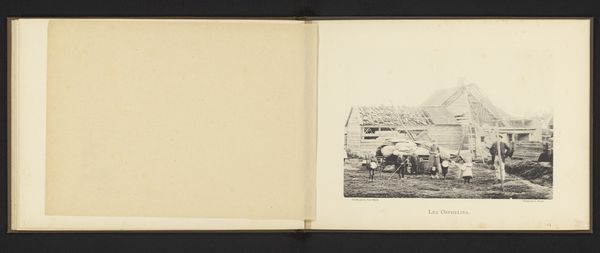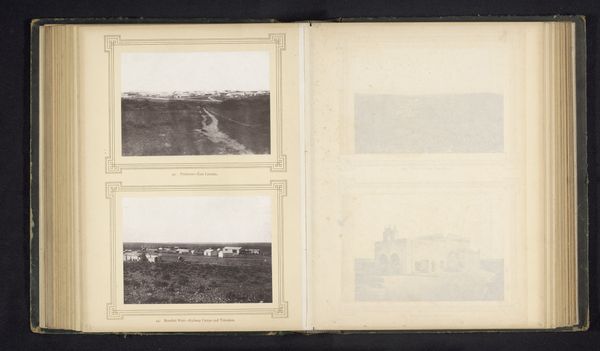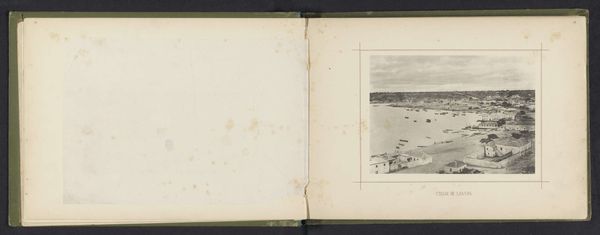![['Port Elizabeth-looking North from "the hill"', 'Mossel Bay'] by Sam Alexander](/_next/image?url=https%3A%2F%2Fd2w8kbdekdi1gv.cloudfront.net%2FeyJidWNrZXQiOiAiYXJ0ZXJhLWltYWdlcy1idWNrZXQiLCAia2V5IjogImFydHdvcmtzL2M2YjNhZDZhLWNiYzktNGQ0Mi1hMWM5LWY5YmJhMWYxNDJlNS9jNmIzYWQ2YS1jYmM5LTRkNDItYTFjOS1mOWJiYTFmMTQyZTVfZnVsbC5qcGciLCAiZWRpdHMiOiB7InJlc2l6ZSI6IHsid2lkdGgiOiAxOTIwLCAiaGVpZ2h0IjogMTkyMCwgImZpdCI6ICJpbnNpZGUifX19&w=3840&q=75)
print, photography, gelatin-silver-print, albumen-print
#
african-art
# print
#
landscape
#
photography
#
gelatin-silver-print
#
cityscape
#
albumen-print
Dimensions: height 290 mm, width 219 mm
Copyright: Rijks Museum: Open Domain
Editor: So, here we have a page from an album containing early photographs of South Africa. Specifically, we see "Port Elizabeth - looking North from 'the hill'" and "Mossel Bay", both dating from before 1880. They're gelatin silver and albumen prints, showcasing cityscapes and landscapes. The 'Port Elizabeth' photograph captures my eye—the long stretch of buildings along the coast makes me wonder about its history as a port city. What stands out to you? Curator: I see these images as visual anchors of colonial memory. Consider the angle in “Port Elizabeth”; it is shot *from* "the hill," literally a position of dominance overlooking the town. This choice of perspective embodies the colonial gaze, fixing the landscape and its inhabitants within a framework of control and possession. How do you think the photographer might have framed it differently had their intentions not been rooted in colonialism? Editor: That's a really interesting point about the "colonial gaze." If they weren’t thinking about colonialism, maybe they would’ve focused on the individuals, showcasing the day-to-day activities, rather than focusing on the general landscape. Curator: Precisely! Now consider, even the choice of framing multiple images on one page; it mirrors the act of cataloging and classifying—a very colonial impulse. Even more, albumen and silver gelatin prints carry a weight here, the very chemical processes used acting as instruments for capturing and fixing a particular view of reality. Editor: I hadn’t thought about the materiality of the photograph itself as a carrier of meaning. It's fascinating how something like photographic material can itself be imbued with symbolic power. Curator: And think of how the act of taking and collecting photographs in albums creates a portable and easily digestible version of the world, which is an impulse that connects to today! Editor: Seeing these photographs as more than just historical documents but as symbolic representations of a specific viewpoint really broadens my understanding of the period. Thanks!
Comments
No comments
Be the first to comment and join the conversation on the ultimate creative platform.
